Caregiving
If you are among those who became a Reiki practitioner in hopes of being helpful to your loved ones, raise your hand -- that is, if you have a free hand to raise. If both your hands are occupied with caregiving, just nod.
Last week I had a nice conversation with a regular reader in Michigan who thanked me "for putting yourself out there week after week for the Reiki community." I thanked her right back, because feedback like that is what keeps me going. I try not to include too much about myself in this publication -- it's about Reiki, not me -- but I do understand that the personal touch is important. Mostly I tell you about my own experiences in hopes that you'll do the same, so that this can become a community discussion instead of a one-way conversation.
This week, I'm "putting myself out there" once again to talk to you about what I've been doing for the past week or so: taking care of a loved one whose chronic condition has become acute once again.
My home Reiki table usually sits folded in a closet until needed, but this week I rearranged the furniture to give it a more permanent, accessible place in our household. I've done two sessions on my ailing loved one so far today, and may do another when we get back from his doctor's appointment this afternoon, depending on whether I can find time with all the other tasks that await me. There's already a prescription refill waiting to be picked up at the drug store, and probably one or more new ones after we see the doctor again. Then there are all the other tasks, both household and business, waiting for my attention -- so many that I have to do triage to take care of the most urgent matters first, and postpone anything that can wait another day. In the midst of all that I try to make time to look after myself as well -- there's no room in the schedule or budget for me to get sick too. Most of my usual daily wellness routine is on hold for now, so I'm doing my best to make do with an abbreviated version.
Each morning I go through the Reiki precepts as usual, except lately it feels like I'm grabbing onto them as I might an oxygen mask on an airplane -- you know how they always tell you to put your mask on first before trying to help anyone else. And though it's far from ideal, I've been combining meditation and exercise with chores such as laundry or carrying home the groceries, fitting in what I can when I can.
My loved one's illness is one of the primary reasons I got so interested in Reiki -- a few years ago, as a brand-new Reiki 1, I was able to give him a Reiki session that put an abrupt end to one of his acute episodes. Unfortunately we don't get such successful results every time, but Reiki always seems to help to some extent. (It's not a substitute for medical care, of course.)
My loved one's illness, and all the ways we and his team of healers have tried to address it, have been an education for me. From our family doctor to various specialists to acupuncturists to holistic practitioners, there are many different approaches, but one common thread: the patient (or client) goes to the practitioner, the practitioner tries something that might help, the client pays, makes another appointment, and leaves. Ideally, an energy shift takes place with each visit, and ideally, that shift is for the better. Sometimes ideal is too much to hope for. But as much as they want to help, none of the healing professionals we've gone to for help has felt that it was on them to solve the problem permanently. Personally, I wish for that so much that I would prefer it to winning the lottery. Professionally, I know that isn't my responsibility. Somewhere in my studies of the healing arts, I remember a Native American medicine man who said that the healer's job is simply to create a distraction while the patient heals himself. That sums it up better than I could myself.
No matter how professional, objective, and detached I try to be when I offer Reiki or other modalities to my afflicted loved one, I can't pretend I'm not emotionally involved -- of course I care deeply and want very, very much for him to feel better. That emotional attachment makes me less of a clear channel for the energy I work with, and as a result it makes me less effective with a dear family member than I might be with a professional client. But when my loved one wakes up sick at 4 a.m., I have no choice but to do my best to help him right then and there. During normal business hours, I enlist other professionals to help, but our resources are finite, of course, so we have to be judicious about the number of practitioners we call upon for help. This problem has been with us for years already, and is unlikely to magically disappear, so we have to be practical.
I thought about trying to offer some handy hints here for other caregivers, based on what I've learned from caring for this and other loved ones in distress. But reading over what I've just written, I realize I need to handle that a bit differently. Since I'm swamped at the moment, I'm asking you -- especially those of you who are caregivers -- to provide the handy hints, not only for taking care of others but for taking care of yourself in this kind of situation. Please send your handy hints to editor@thereikidigest.com. Thanks in advance for any and all suggestions.
On a brighter note, The Reiki Digest is happy to announce that the carnival is coming. Next month -- December 22 to be exact -- we'll be hosting the Carnival of Healing. What's that? It's a weekly online festival of blog posts that have to do with holistic healing, headquartered at the About.com Holistic Healing page. In addition to the Carnival's regular contributors, we're inviting Reiki Digest readers to participate. If you have a blog of your own, write up a healing-related post for the occasion and send me the link by December 15. If you don't have your own blog but you've got something to say, send it to editor@thereikidigest.com and be part of the Carnival anyway. The Reiki Digest's Carnival of Healing edition will be the final one for 2007, as we traditionally take some time off at year's end.
In other exciting news, this week we have a Celeb-Reiki spectacular, because there are so many famous people associated with Reiki in the news, so many that this week's Celeb-Reiki report will also serve as our Reiki Roundup.
First on our list is Kiwi (that means "from New Zealand") cyclist Hayden Roulston, who had to retire from the sport last year because of a heart ailment but is enjoying an amazing comeback for which he credits Reiki. We counted nearly 40 stories about Roulston and Reiki in the news this week. The best headline, "Roulston loves Reiki," doesn't have much of a story with it, but you can read more about Roulston's Reiki-enhanced recovery here and here. The Reiki Digest congratulates Roulston not only on his recent victories, but his recovered good health, and we wish him more of both.
In Liverpool, England, we find a Reiki practitioner who has worked with such celebrities as supermodels Claudia Schiffer and Naomi Campbell, and whose partner has worked in security for the likes of sports/Spice couple David and Victoria Beckham. That means Schiffer, Campbell, the Beckhams (and their children) and the Spice Girls are among this week's Celeb-Reikies.
But wait -- there's more: Vivian Israel, Reiki practitioner as well as cellist in the Long Island Philharmonic gets a writeup in Newsday. And back in the U.K., actor Damian Christian of "Coronation Street," "East Enders" and "Emmerdale" is working on a new career practicing Reiki and other healing modalities.
That's it from here until next week. We look forward to your handy hints for caregivers, or anything else you might have to say.











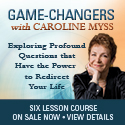
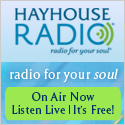








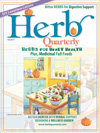
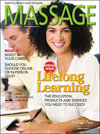


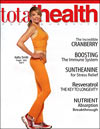






0 Comments:
Post a Comment
<< Home